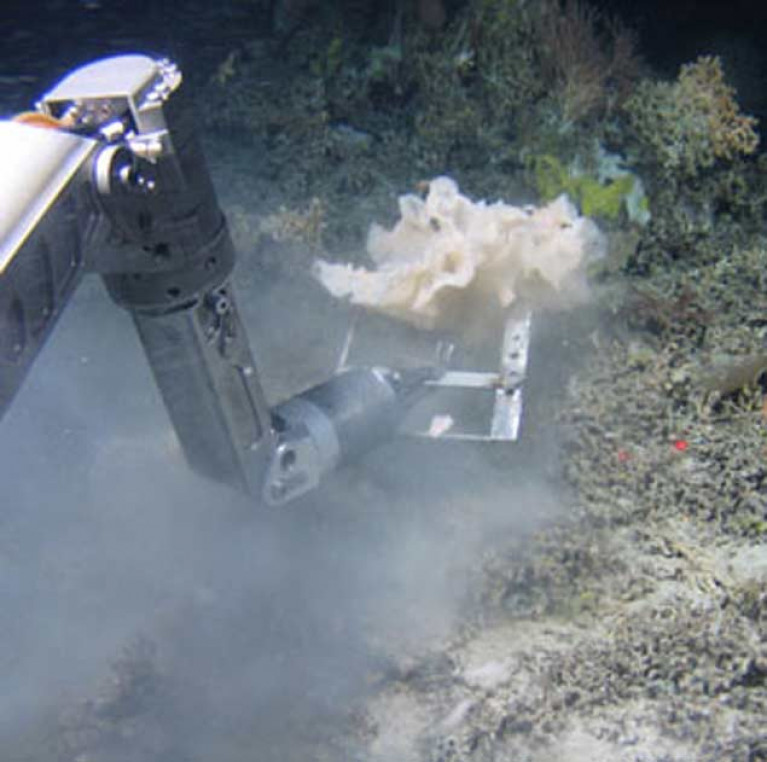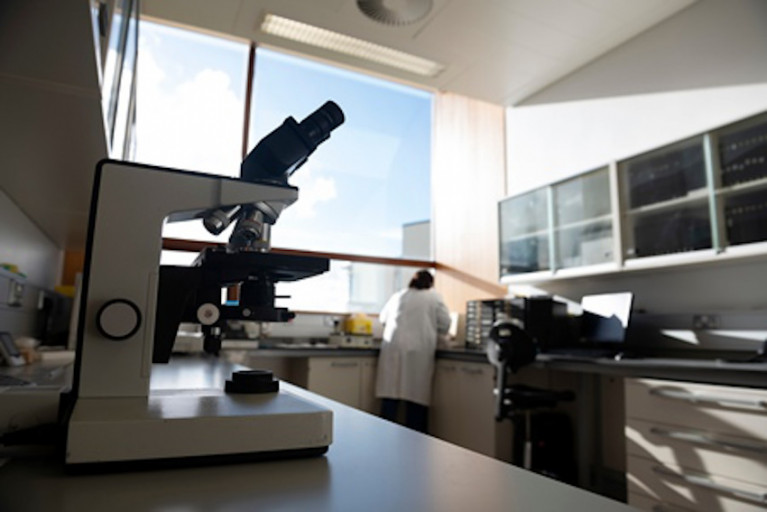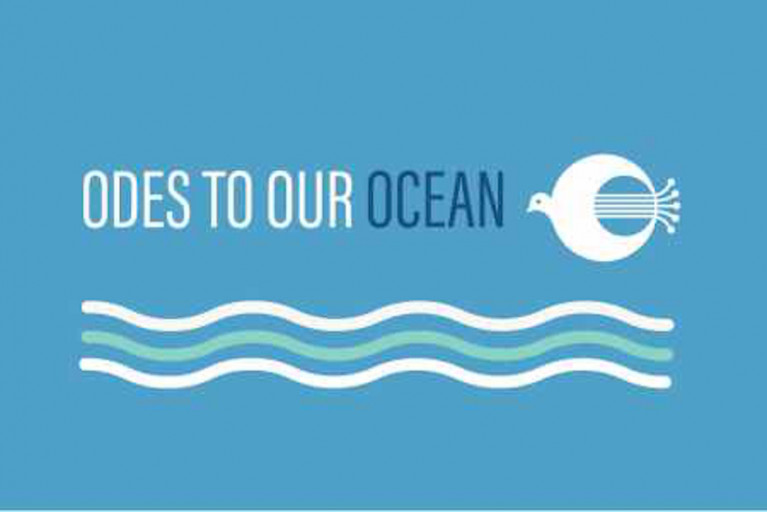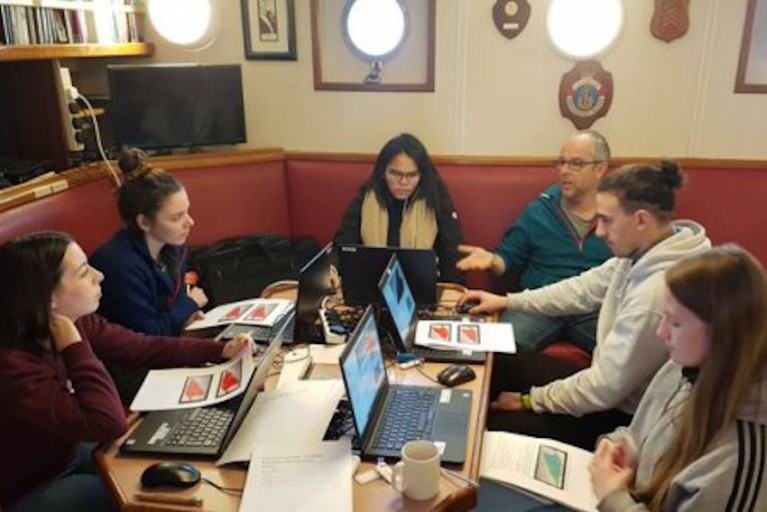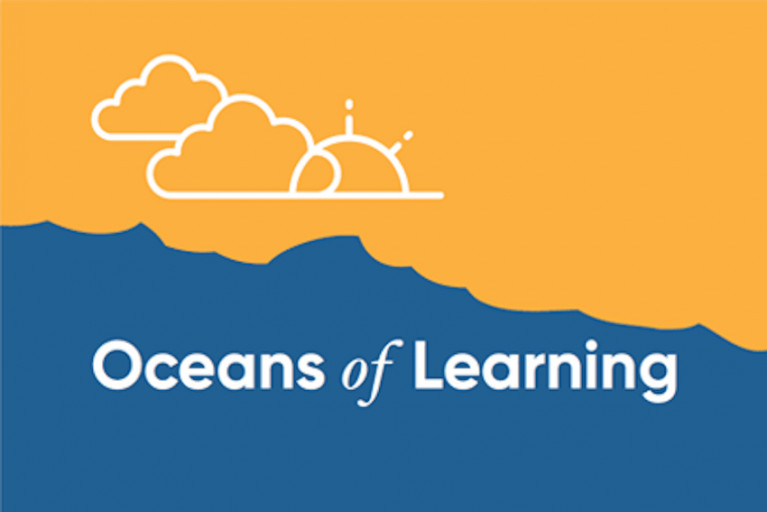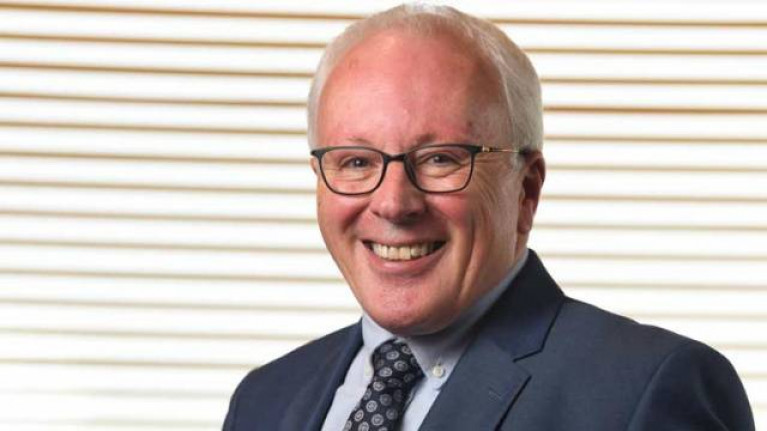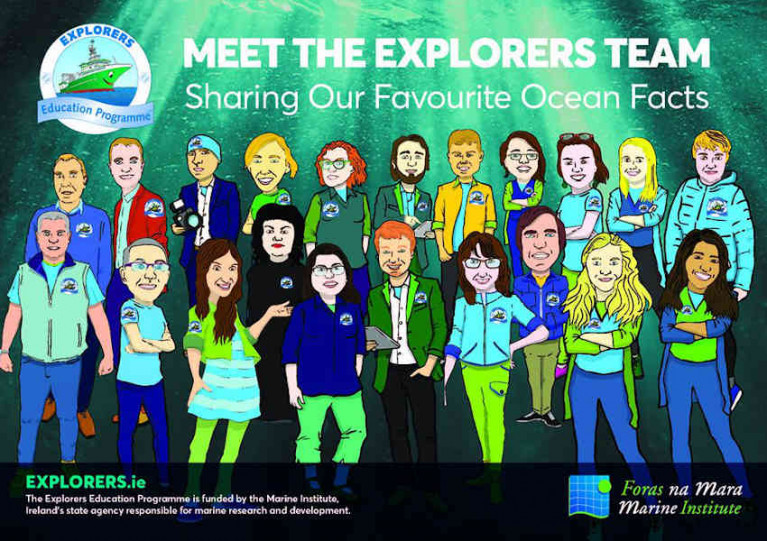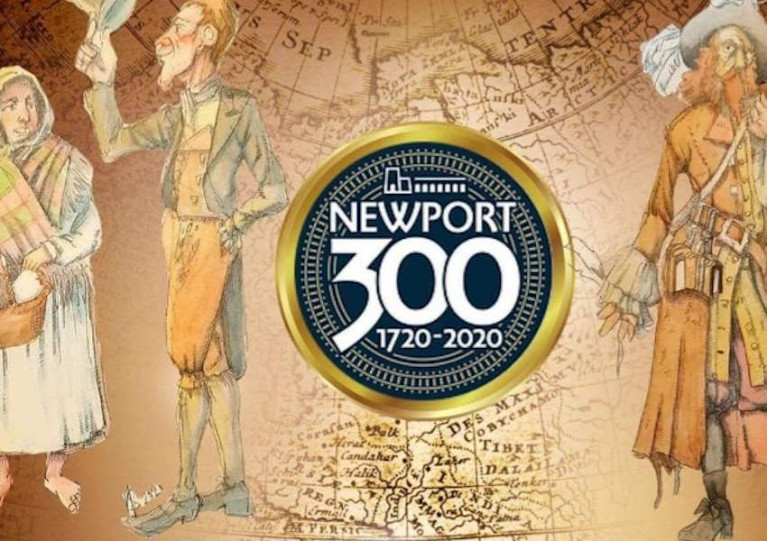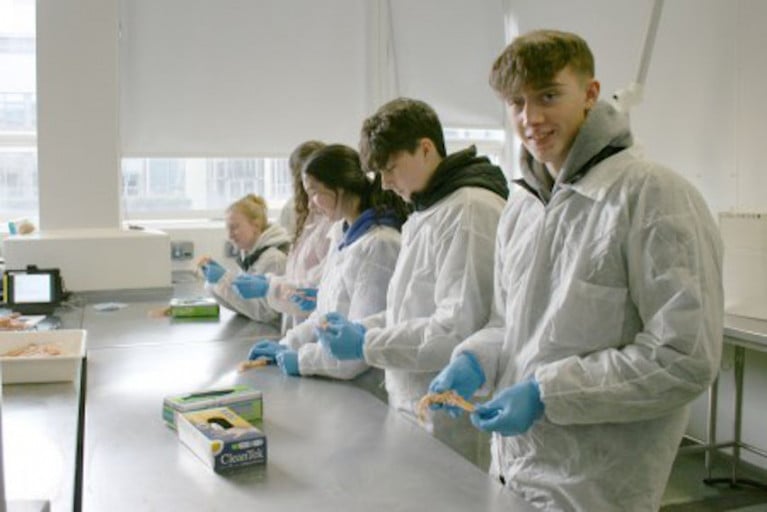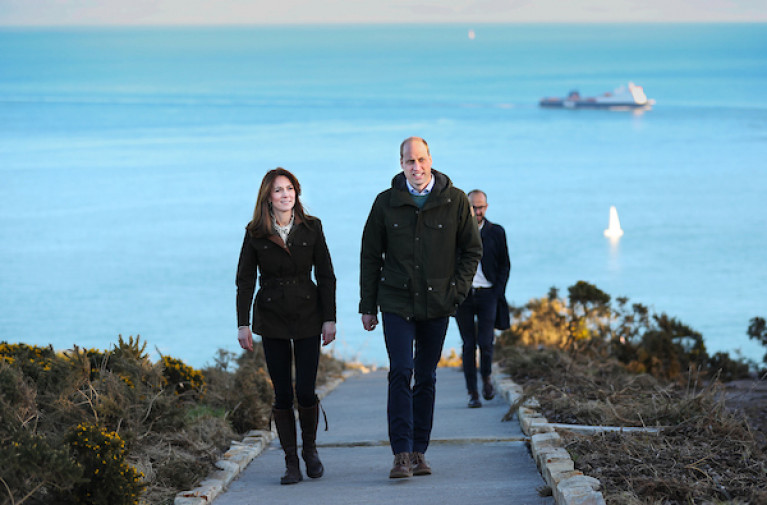Displaying items by tag: Marine Institute
Celebrating World Oceans Day and this year’s theme of ‘Innovation for a Sustainable Ocean’ is the focus of the Marine Institute’s Oceans of Learning series this week.
As Afloat reported earlier, the Institute and partners celebrate our world’s shared ocean and our connection to the sea throughout the 10-week series, sharing news and offering online interactive activities, videos and downloadable resources on a new marine topic each week.
World Oceans Day (#worldoceansday) takes place on Monday 8 June and connects people globally in celebrating the ocean, its importance to our lives and focusing on how each of us can protect the ocean, no matter where we live. This year, the day particularly focuses on the role that innovation has in making our interactions with the ocean sustainable.
The latest report on the ocean economy from the Organisation for Economic Co-operation and Development (OECD) emphasises the growing importance of science and technologies in improving the sustainable economic development of our seas and oceans. Marine ecosystems sit at the heart of many of the world’s global challenges: food, health and wellbeing, new sources of clean energy, climate change, job creation and inclusive growth.
We need to safeguard and improve the health of marine ecosystems to support our ever-growing use of marine resources. As the challenges to our ocean continue to grow, so too does our need for innovative solutions to address them.
Minister for Agriculture, Food and the Marine, Michael Creed, stated, “Ensuring a sustainable future for our oceans will require stakeholders to focus on innovative mechanisms for addressing both current and future challenges. The Oceans of Learning campaign – One Shared Ocean, One Shared Future - will continue to showcase positive developments across the marine sector in recent years and examples of innovation in action as we approach and celebrate World Oceans Day 2020.”
Dr Paul Connolly, CEO of the Marine Institute, said, “Our ocean is our greatest natural resource and we see that most directly in Ireland with the vital importance that the Atlantic Ocean plays in our daily lives – from facilitating our trade through shipping to influencing the weather and providing seafood to support a healthy diet.
“This year’s theme for World Oceans Day is especially relevant in the lead-up to the UN Decade of Ocean Science for Sustainable Development, which will run from 2021 to 2030, and is born out of the recognition that much more needs to be done to create improved conditions for the sustainable development of our oceans, seas and coasts and to reverse the decline in ocean health.”
Oceans of Learning is marking World Oceans Day by featuring projects that use innovative ways to learn more about our oceans and feed back information that is helping to make a positive impact on our daily lives.
With the aim of driving innovation in the marine sector and accelerating renewable energy breakthroughs, the Marine Institute has provided funding to a number of marine enterprises in Ireland. For example, seven renewable energy projects are benefitting from a significant funding injection following investment by the Institute’s industry-led awards, launched in 2018. From research on the impact of floating platform technology, to subsea micro piling to hybrid solar and wind energy devices, the commercial and scientific potential of these new innovations are very exciting.
Exceedence and Technology from Ideas (TFI) are developing an offshore hybrid system, which will benefit the aquaculture sector. Offshore aquaculture farms, where it is too far to reach with electricity cables from shore, currently use diesel as their main source of energy to operate feed barges and other equipment. This brings concerns of ever growing emissions and the climate impact but also increased risk of oil spillages when transporting diesel to the feed barges.
Energy from the waves is a very attractive alternative energy source. TFI and Exceedence are developing an offshore hybrid power system that harnesses the natural power of the waves by converting the motion of the fish cage into electricity.
Ray Alcorn, CEO at Exceedence said, “Our full hybrid off grid power system technology produces clean blue electricity by harnessing the power of the waves, mitigating the fossil fuel requirements on fish cages, which in turn reduces the overall carbon footprint, improving both environmental and climate impacts.”
Ocean data service company XOCEAN, also received funding from the Institute’s industry-led awards to transform marine monitoring and data collection. The company uses innovative robotics, particularly unmanned surface vessels, to monitor and collect fisheries data at sea. As fish are highly mobile, this brings limitations in using single sonar surveys. XOCEAN is researching and developing a cost-effective way of deploying and using unmanned technology with multiple sonar devices simultaneously to survey for fish in an area, in what’s known as a ‘swarm’ formation.
“XOCEAN is delighted to be working with the Marine Institute on this important project,” said James Ives, CEO of XOCEAN. “Sustainability of fish stocks is of critical importance and management of this depends on high quality data. Unmanned systems, such as XOCEAN’s XO-450 USV have an important role to play in delivering safe, high quality and ultra-low carbon ocean data.”
World Oceans Day encourages us to make a difference in our life, in our community, and in our world, by taking action to protect our ocean – for present and future generations. By working together and thinking creatively, we can achieve a healthier ocean that will provide for the billions of humans, plants and animals which depend on it every day.
The Marine Institute has announced a call for proposals from academic institutions to host Cullen Scholars and provide research training opportunities for scientists in marine and related disciplines leading to the acquisition of a doctorate.
The Cullen Scholars will be based primarily at a Marine Institute location during their scholarship in Fisheries Ecosystems Advisory Services (FEAS) in Galway and Newport, the Irish Maritime Development Office (IMDO) in Dublin, and Ocean Science and Information Services (OSIS) in Galway.
The Cullen Scholarship Programme provides development opportunities for the next generation of marine researchers, building marine research capacity. The programme was established in memory of Anne Cullen (1958-2013), who made a significant contribution to the work of the Marine Institute over 35 years.
Details of the individual research topics and Marine Institute co-supervisors are listed here:
- Enhancing farmed Atlantic salmon quality through new production technologies
- Biological changes in key commercially exploited fish in the light of Climate and Ocean Change
- Ecology of Irish tunas
- Improving fishing survey indices through the use of spatio-temporal models
- Biodiversity conservation and restoration in the Wild Nephin Ballycroy National Park
- The harbour porpoise (Phocoena) in Dublin Bay: Assessing habitat use and the effect of anthropogenic activity using visual and acoustic methods
- The economic analysis and development of long-term sustainable financial models for an Irish Ocean Observing System
- Machine learning-assisted detection and prediction of climate change related anomalous in complex marine systems
- Novel techniques for the collaboration of high precision sea level monitoring stations and development of associated data quality control techniques
- Seasonal to decadal sea level and ocean waves predictions through numerical modelling and statistical analysis
The closing date for this call is 4pm on Tuesday 7 July. All applications must be submitted through the Marine Institute’s online Grant Management System (RIMS).
Further detail of the Programme Terms and Conditions including a copy of the Grant-Aid Agreement and application procedures are available in the Cullen Scholarship Programme Terms.
Contact the Research Funding Office at [email protected] with any queries on the application process.
Celebrate Poetry Day Ireland With ‘Odes To Our Ocean’
To mark Poetry Day Ireland tomorrow (Thursday 30 April), the Marine Institute is sharing a selection of poems that celebrate the power of our seas and oceans.
The State agency for marine research will join Poetry Ireland’s annual celebration of poetry, which this year is taking place online all over the island of Ireland.
“It’s wonderful that the Marine Institute is taking part, as the marine world has long been a subject of fierce fascination for poets,” said Lisa Jewell of Poetry Ireland.
“By sharing poems online during Poetry Day Ireland, the institute is helping to bring people together through poetry and deepen their appreciation of our ocean.”
The Marine Institute will share poems from well-known poets such as Ireland’s beloved Seamus Heaney, and American poets Walt Whitman and Emily Dickinson.
Dickinson often wrote about the sea but it’s believed she did so from her imagination, having never actually visited the ocean.
Other writers who have been captured by the sea’s imagery include famous children’s author Lewis Carroll, and Irish poet and much-loved former TV presenter Pat Ingoldsby.
Poet Robin McNamara, living in Waterford city, has also kindly shared his poem ‘The Fisherman’, about the sacrifice and dangers faced by fishermen who fish the seas off Dunmore East, Co Waterford.
Poems inspired by the sea are already being shared each day on the Marine Institute’s social media channels — Facebook, Twitter and Instagram — which will continue until this Saturday 2 May.
The poems will also be available for download on the Marine Institute’s website.
A new Master’s course specialising in remote sensing and the principles of seabed mapping has been successfully delivered by a joint partnership between the Department of Geography at the Maynooth University and Ireland’s marine mapping programme INFOMAR.
The level 9 post-graduate module teaches students about the science of seabed mapping by providing a combination of class-based learning and practical offshore survey experience.
The course outlines the importance and impact of seabed mapping, and features a range of topics including how seabed data are collected and processed to produce high resolution maps of seafloor depth, type and habitat.
Lectures illustrate how scientists measure and describe the seafloor in incredible detail, using state of the art acoustic sonar, positioning, and optical instrumentation.
The use of satellite imagery analysis is explained in studying coastal seabed depth and shape, with practical examples utilising images of Dublin Bay acquired on the Sentinel-2 satellite’s sensor almost 800km above the Earth’s surface.
The module includes a two-day offshore practical where students are given an opportunity to apply the theoretical learning aboard the RV Celtic Voyager.
This is one of six survey platforms deployed by INFOMAR during seabed mapping operations, tasked with operating along the continental shelf and coastal waters.
Students get exposure to the dry and wet/chemical laboratories, as well as to operating an array of scientific equipment including the multibeam sonars and associated oceanographic instrumentation.
Participants boarded the RV Celtic Voyager in the Port of Cork and departed to the outer reaches of Cork Harbour where the offshore element of the module was conducted successfully on 15 and 16 February.
Training activities undertaken onboard included a marine mammal observation deck watch, survey computers and software use, benthic ecology, sedimentology classification, sound velocity probe deployment, multibeam echosounder, and sub-bottom profiler data gathering.
‘This module … demonstrates the welcome influence of Irish seabed mapping expertise on new sectors of society’
After exposure to the scientific equipment, workflows and data processing onboard, the students were tasked with the design, planning and implementation of a real-life survey scenario. This enabled them to apply their newly acquired seabed mapping knowledge as a team of scientists would in real-world conditions.
Overall the INFOMAR MSc module gave Maynooth students an overview of remote sensing techniques, helping them to understand bathymetric data products, to recognise data limitations, and to identify key systems and practices used in the field of seafloor surveying.
Students also developed a technical grounding in mapping at different resolutions, and the importance of instrumentation calibration, quality control and processing of bathymetry datasets, before product delivery to end users.
In addition, students learned how to source marine data online from INFOMAR’s Interactive Web Data Delivery System and online Webviewers, and via web-based portals operated by the European Marine Observation and Data Network (EMODnet) and the Copernicus Marine Environment Service.
Importantly, says the Marine Institute, the module was taught within the context of end users, stakeholders and the policy framework underpinning ocean science and ocean literacy, highlighting both the relevance and importance of mapping the Earth’s seafloor.
Participants benefited from the fact that the course was delivered directly by the INFOMAR team, who have extensive experience of offshore surveying, and were able to share their own experiences and varied employment backgrounds with the students.
Sean Cullen, of the Geological Survey Ireland and INFOMAR joint programme manager, said: “I’m pleased to see the very positive feedback on the course overall both from the students and the tutors.
“This module, newly developed by the INFOMAR team, with steering from the Department of Geography at Maynooth, demonstrates the welcome influence of Irish seabed mapping expertise on new sectors of society and is timely addition to the INFOMAR education initiative as we face into the United Nations Decade of Ocean Science for Sustainable Development.
“The collaboration is an encouraging sign that seabed science belongs in the space of third level education, and sets to further promote Ireland as leaders in marine science and of ocean literacy on an international stage.”
Thomas Furey, INFOMAR joint programme manager from the Marine Institute, added: “It is critical that we create a legacy to build on Ireland’s world leading role in seabed mapping, and through launching our third level delivery of INFOMAR specific training, we are contributing to capacity build, marine economy growth, and Ireland’s marine plan, Harnessing Our Ocean Wealth.”
Dive Deep Into ‘Oceans Of Learning’ Online Resources
Dive deep into the oceans of learning resources available on the Marine Institute’s website via the Oceans of Learning series, which offers downloadable resources, videos and interactive activities exploring our marine resource and marine scientists’ vital work.
As the institute’s new chief executive insists on Tom MacSweeney’s latest podcast, it is essential to have good public understanding of the importance of the sea.
That’s never been easier today, as students of all ages can go online and discover, for instance, the importance of Ireland’s marine research vessels — the RV Celtic Explorer and RV Celtic Voyager — and jump on board the former for a 3D virtual tour.
Elsewhere, you can navigate a range of marine topics through the awareness campaign Exploring Our Marine, and learn about weather buoys, phytoplankton, deep-sea species and Ireland’s ocean economy.
And discover more about our oceans through a colourful series of marine facts, on everything from shipping and seafood to sharks and shipwrecks.
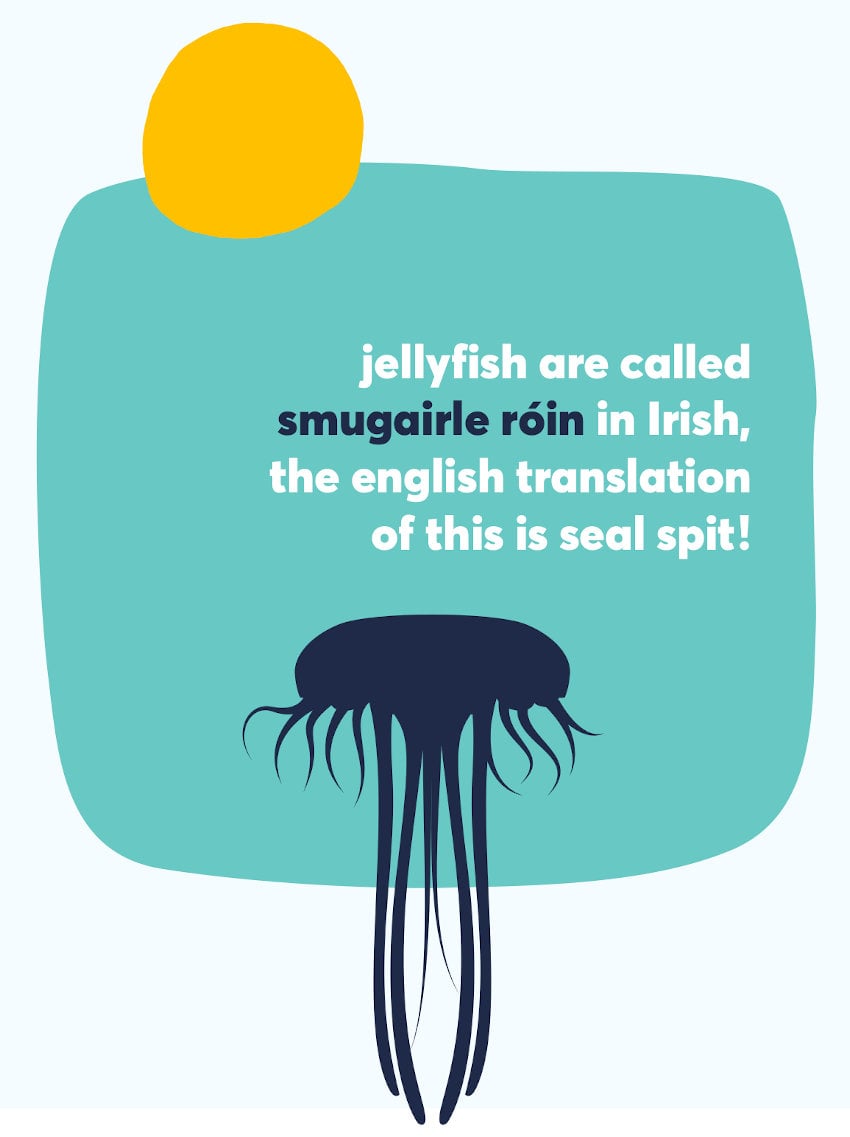
The Marine Institute’s Explorers Education Programme also offers lesson plans about the ocean for teachers, parents and primary school children to use while schooling from home.
Other educational initiatives supported by the Marine Institute include the documentary series Ireland’s Deep Atlantic.
The well-received series features in online classroom resources for Junior Cycle students and explores sustainable development, impact on the environment, the Real Map of Ireland and the importance of our ocean territory. Lesson plans and video clips from the documentary are available from the RTÉ Learn website.
Other online learning programmes recently highlighted on Afloat.ie include the Irish Whale and Dolphin Group’s Flukey Friday, and the Irish National Sailing & Powerboat School’s Sailing School from Home.
The new Chief Executive of the Marine Institute says that it is essential that there is good public understanding of the importance of the sea.
The Institute is the national agency responsible for maritime research, technology development and innovation policy.
Dr.Paul Connolly says that the indications are that there is growing public interest in the oceans which is “grounded in the impact the oceans are having on climate.”
Before taking over the leadership of the Institute, following the retirement of former CEO Dr. Peter Heffernan, he was its Director of Fisheries and Ecosystems and has also been President of the International Council for the Exploration of the Seas, known as ICES. This is a network of 20 countries developing scientific understanding of marine ecosystems, their conservation, management and sustainability.
“For every ten breaths you take, seven of those breaths use oxygen that came from the ocean, so the ocean is producing 70 per cent of the oxygen we breathe”
“For every ten breaths you take, seven of those breaths use oxygen that came from the ocean, so the ocean is producing 70 per cent of the oxygen we breathe,” he says.
Dr. Connolly identifies problems that have to be dealt with – ocean acidification, changing currents and how that impacts the weather; the issue around plastics pollution which “has become huge in terms of the consciousness of the public” and he says that “the whole area of food from the ocean is very big in the public mind.”
He says that there will be Marine Protected Areas established around Ireland and that these will need discussion and close work with the fishing industry.
“Coming into the next couple of years the whole issue of climate, trying to understand climate and the big part the ocean plays in it will be huge,” he CEO says in the Podcast that you can listen to here.
Listen to the PODCAST below
The Marine Institute’s Explorers Education Programme outreach team are currently sharing their favourite marine facts and lesson plans about the ocean for teachers, parents and primary school children to use while learning from home.
The ‘Meet the Explorers Team’ online initiative is in recognition of International Earth Day, celebrated each year from the beginning of spring to Earth Day itself on 22 April, says Explorers Education manager Cushla Dromgool-Regan.
“Many of our Explorers outreach teams are going digital this month sharing their stories, favourite facts and providing free lesson plans to help raise awareness about the ocean and all the life it supports,” she added.
The Explorers team will be posting ocean facts on its Facebook and Twitter social media channels, and have set up a dedicated web page for teachers and parents to download free lesson plans, activities, project ideas and fun facts about the ocean over the coming weeks.
They are also keen to share children’s favourite facts, stories and projects about the ocean online. Keep an eye on social media for updates, competitions and sharing new stories about the ocean.
Newport’s 300th Anniversary Celebrated With Lecture Series On Research Fishery (UPDATE)
Update on Wednesday 11 March: Due to concerns over COVID-19/coronavirus, the decision has been made to postpone the two lecture evenings until a later date during the Newport 300 celebrations.
To celebrate the 300th anniversary of Newport in Co Mayo, the Marine Institute will be presenting a lecture series this Thursday and next at Nevin’s Newfield Inn in the town.
A range of speakers will share their experiences and discuss the research undertaken at the Marine Institute’s Newport Research Facility, which has been in operation since 1955 and became part of the institute in 1999.
Research focuses on a wide range of topics including fish ecology, genetics, population dynamics and advice for a broad range of species, as well as oceanography and impacts of climate change on aquatic ecosystems.
The first lecture, this Thursday 12 March, begins at 7pm and will focus on the ‘how and why of Burrishoole research and how it has evolved’ as outlined by Russell Poole of the Marine Institute.
The fish traps managed by the Marine Institute, and located between Lough Furnace and Lough Feeagh, monitor all movements of fish to and from the freshwater catchment. Burishoole is one of the few places in the world where every single migratory fish moving in or out of the catchment can be counted.
Elvira de Eyto of the Marine Institute and past Cullen Fellow Sean Kelly of the Dundalk Institute of Technology (DkIT) will also talk about 65 years of environmental observations of the Burrishoole catchment, which includes data collection on weather, water quality, floods and plankton.
And author Sean Lysaght will conclude the first lecture evening by speaking about ‘Eagles in Mayo - Their Heritage and History’.
The second lecture evening, titled ‘Marine and Wildlife in Clew Bay’, will be held next Thursday 19 March at 7pm.
Aisling Doogan, PhD student at Galway-Mayo Institute of Technology (GMIT) and a Cullen Fellow at the Marine Institute, will talk about her research on tracking Atlantic salmon smolts through Clew Bay.
Phil McGinnity, Marine Institute and University College Cork (UCC), has been involved in fisheries research and management for more than a quarter of a century and will discuss his research in fish population genetics.
Eoin McGreal, conservation ranger with the National Parks and Wildlife Service, will also speak about the variety of wildlife in Clew Bay.
Marine Institute chief executive Dr Paul Connolly said: “We are delighted to host this lecture series to support Newport 300.
“The Marine Institute’s Newport Research Facility is a hub for national and international research with Marine Institute staff, collaborating researchers and students based at the facility. This lecture series is a great opportunity to share our diverse range of research projects with the Newport community."
The Marine Institute will also host a Family Open Day at the Research Facility on Sunday 29 March from 11am to 4pm to celebrate Newport 300. Details to come.
Twenty-five Transition Year (TY) students from Mayo, Galway, Roscommon, Clare, Kildare, Carlingford, Dublin and Sligo were welcomed to the Marine Institute’s sixth annual TY week programme following the recent midterm break.
From 24-28 February, students had the opportunity to learn about marine science, technology, engineering and communication through a range of activities at the Marine Institute's headquarters in Oranmore, Co Galway.
Students participated in interactive activities related to marine fisheries and chemical science, seabed mapping, food safety, communications, research vessel operations, oceanography, climate change, engineering technology, maritime development, information technology with data and coding as well as team-building.
The TY programme enables students to shadow scientists and staff at the Marine Institute and experience what it is like to work in the marine sector.
Marine Institute chief executive Dr Paul Connolly said: “Our TY programme provides an insight into the diverse career opportunities on offer in Ireland’s marine sector, and inspire the next generation of marine professionals and ocean leaders.
“Increasing students’ knowledge and engagement on the importance of our marine resource is key to supporting Ireland’s ocean economy, where highly-skilled professionals are needed in the future.”
HR manager Catherine Quigley-Johnston added: “The demand for our TY programme is growing every year and it is great to see such a strong interest in science, technology and the environment and that many are considering pursuing careers in our marine and maritime sectors at this stage of their education.
“Alongside the interest and enthusiasm from our students, the passion and knowledge shared by our teams involved in delivering the content helps make the TY programme a success."
Encouraging a new generation to pursue marine and maritime careers is part of the Marine Institute’s Strategic Plan 2018-2022: Building Ocean Knowledge, Delivering Ocean Services.
Ireland's national marine plan, Harnessing Our Ocean Wealth, also highlights the need for education and training programmes to maintain and develop skilled professionals in the marine sector.
All places for this year’s TY programme have been allocated, but next year’s Transition Year students, from any school in Ireland, are welcome to apply for the week-long, full-time programme at the Marine Institute for 2021 when the process begins in September.
The vital role of the ocean, climate change, and actions to safeguard it for future generations were the focus of conversations between The Duke and Duchess of Cambridge and the Marine Institute during the royal couple’s first official visit to Ireland.
Dr Paul Connolly, CEO of the Marine Institute, Ireland’s state agency for marine research, technology development and innovation, along with All-Ireland Ocean Youth Ambassador, Eimear Manning, met with The Duke and Duchess at Howth, North County Dublin, today.
During a coastal walk of Howth Head, Dr Connolly spoke with Their Royal Highnesses on several subjects that are central to the work of the Marine Institute including the importance of the oceans to coastal communities and climate adaptation. The Marine Institute, through the BlueFish Project, is working with coastal communities in Ireland and Wales on the importance of the ocean to their livelihoods and the impacts of a changing climate.
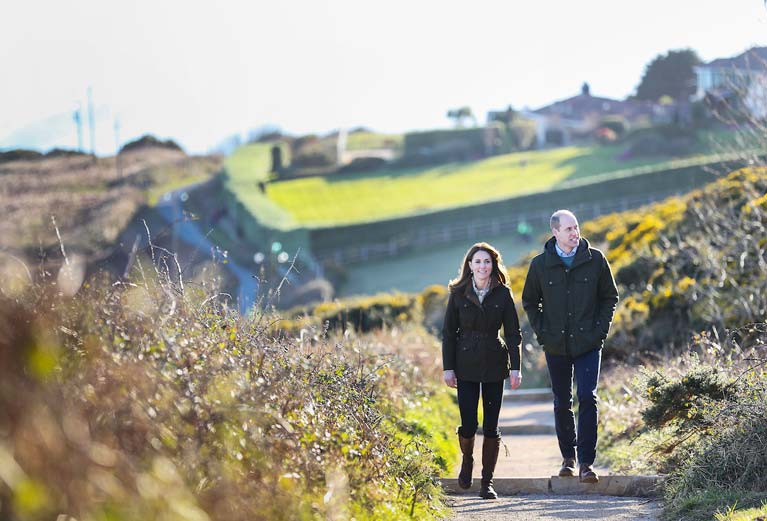 The Royal couple take a stroll on the Hill of Howth, a village and outer suburb of Dublin Photo: Julien Behal
The Royal couple take a stroll on the Hill of Howth, a village and outer suburb of Dublin Photo: Julien Behal
Other topics of conversation included Ireland’s role in exploring and mapping the seabed, international collaboration on ocean research, and the Marine Institute’s role in empowering Ireland and its people to safeguard and harness our ocean wealth.
Eimear Manning is one of 23 All-Atlantic Ocean Youth Ambassadors who are supported by the All-Atlantic Ocean Research Alliance (AORA). She is also an environmental education specialist delivering programmes for a variety of environmental and youth-focused charities and Non-Governmental Organisations.
She spoke with The Duke and Duchess of Cambridge about ways to engage with communities, schools and businesses to introduce behavioural change initiatives and programmes for the marine environment. Working with All-Atlantic Ocean Youth Ambassadors across the globe, she strives to promote sustainable development and stewardship of the Atlantic Ocean.
The Marine Institute’s work aligns with The Royal Foundation of The Duke and Duchess of Cambridge and its aim to unite people to tackle some of today’s biggest challenges.
In January 2020, Prince William launched the Earthshot Prize, an ambitious set of challenges to inspire a decade of action to repair the planet. These challenges will seek answers to the biggest issues currently facing the planet, including climate and energy, nature and biodiversity, oceans, air pollution and fresh water.
2020 signals a ‘super year’ for the environment with crucial summits including the COP26 Climate Change Conference in the UK and the Convention on Biodiversity in China and the UN Ocean Conference. This year, European Maritime Day takes place in Cork City, Ireland, with a two-day event (14-15 May) during which Europe’s maritime community meet to discuss and forge joint action on maritime affairs and sustainable blue growth.
Dr Paul Connolly, CEO of the Marine Institute said, “I was delighted to meet with Their Royal Highnesses, The Duke and Duchess of Cambridge, to talk about shared interests in protecting our oceans and adapting to a changing climate.”
“Our oceans are fundamental to life on earth. They unite us – yet they face a multitude of challenges. Our focus in the Marine Institute is to further our understanding of our changing ocean. Our enhanced knowledge and services help us to observe these patterns of change and identify the steps to safeguard our marine ecosystems for future generations.”



























